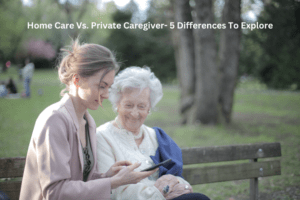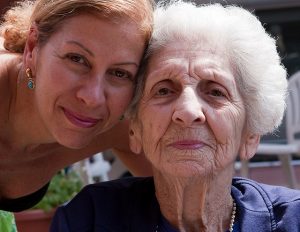Important Tips to Stay Healthy for Working Women
As a working woman, it is increasingly difficult to find the time to care for yourself. When work and career feel like they are taking you over, you might start to notice a considerable drop-off in the quality of life that you lead. If this is the case, we recommend that you try and stick to these important tips for staying healthy.
Carry these out daily, and you will notice your quality of life soar.
Eat a Healthy Diet
The worst thing that you can do is let your diet get out of control. When on-the-go, you might find it hard to make time to eat properly. However, you should look to improve your food intake in terms of food quality, whilst reducing the quantity that you eat. Instead of going too fast food and restaurant outlets for your lunch, bring a hearty mixture of fruit and vegetables to work.
Instead of snacking at your desk on crisps, go for something a touch more wholesome like nuts or seeds. Adjusting your diet is the first and most important lifestyle change that you can make. Also, try to boost your calcium intake. Calcium levels in our bodies tend to drop in our The 30s, so taking in more calcium (often through healthy dairy products or even supplements) could really help with improving your daily dietary habits.
Meditation
If you find it hard to stay mentally switched on, you might benefit from a spot of meditation. Meditation has become the go-to choice for many people who live busy lives. Stress and anxiety will build-up with every working day, and you need to find a means of releasing yourself from that added mental pressure.
Simply sit down in a quiet part of your home (or office) where there is no audio or visual distraction. Close your eyes and take deep breaths. Start concentrating either on your breathing or on one single train of thought – even a simple mantra that you can repeat over and over. This will help you to, in about 10-20 minutes, empty your mind of all the clutter, stress and frustration that you carry around with you. The end result? A mind that feels fresh and free from mental anxiety, ready to attack the day. Meditation is simple: it is not about the clothes you wear or the pose you strike, but the way you let your mind relax.
Stretch to Keep Muscles on the Move
One of the biggest mistakes that you could make is to stop stretching. If you are on the move and you are physically active at work, you might think you are nimble and limber. It is, though, important that you allow your shoulders, arms, and legs to be properly stretched out. Why? Because you are much less likely to cause an injury if your muscles are warmed up, flexible and ready to be worked on.
Also, it helps you to get over tiredness. If you are struggling to get yourself through a tense working day, do some stretches. It can inject a bit of feel-good energy back into those tired muscles and get you to the end of the day. Simple stretches that you can do at your desk – even just stretching those hamstrings and shoulder muscles – will be enough. It is a slight change, but one that often produces some incredibly positive and impressive results.
Start Your Day with Warm-Ups
Every day for a working woman should start with a simple warm-up. Going out of the house and straight into work without feeling physically fit and capable is asking for trouble. Make sure that you spend some more time looking after your body – find where you might be suffering most in terms of your working day. Are you on your feet all day? Then your warm-up should consist of getting your legs ready for the punishment to come.
If your work involves a lot of heavy lifting and manual movement, get those shoulders, arms, elbows, and fingers warmed up. Even if you are spending the day doing IT jobs, you should look to warm-up your hands with a few finger exercises. Invest in some tension grips, and you can easily work your hands and wrists up for the day ahead.
Whatever kind of physical challenges your work poses, you can do something to warm-up enough to negate any potential physical damage being done.
Stay Hydrated
The single most important change that you could make, though, is to improve and regulate your fluid intake. When you are busy, the first thing we often forget about is drinking enough water. You should look to up your water intake based on your body weight, using tools such as the hydration calculator from a water ionizer. It is recommended that you drink, on average, 2.7l of water in a single day. If you are not drinking at least this amount, invest in a water bottle that you can take to work with you.
If you buy a water bottle, you can more readily take drinks of water as you work and thus reduce the likelihood that you will stop increasing fluid intake. Your water consumption habits need to change: it must become a habit for you to consume 10-12 cups of water in a single day, every day.
The sooner you get into this habit, the healthier you will begin to feel.
Regular Check-ups
Lastly, make sure that you book yourself in for regular medical check-ups. Many of us don’t find time to go to the doctor until we have a genuine problem. This is really not a good idea. If you are someone who is physically active, then you should still look to get medical check-ups to ensure your body is in fine working order.
Think about other parts of your body, too. For example, you should look to seek regular medical check-ups if you are sexually active to ensure everything is healthy and acting as it should. Also, be sure to go for your pap check every three years after the age of 21. This is for making sure you catch any signs of cervical cancer and gives you peace of mind that your body is in good condition.




